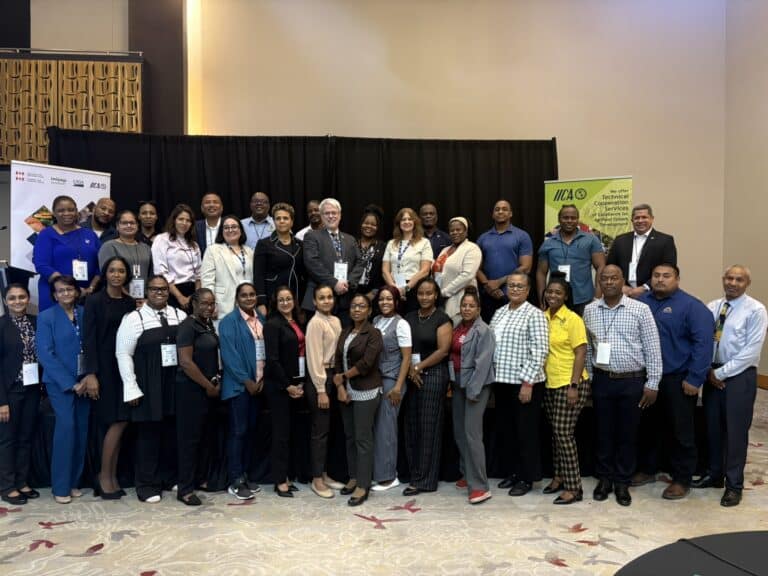Initiative will focus on strengthening the regulatory framework in sanitary and phytosanitary measures, the capacity building in SPS compliance and the strengthening the fisheries sector in SPS controls.

San Jose, 13 July 2020 (IICA) – The 11th European Development Fund Phytosanitary and Sanitary Measures (SPS) Project was launched virtually on July 08, 2020. The initiative seeks to strengthen the capacities of Caribbean countries in agricultural health and food safety so as to improve market access and trade in the Region.
The EU-funded project implemented by the Inter-American Institute for Cooperation on Agriculture (IICA) also involves the Caribbean Community (CARICOM) Secretariat, the Caribbean Regional Fisheries Mechanism (CRFM) and the CARIFORUM Directorate.
The project will be implemented over 36 months and has a value of Euro1.25 Million. The main benefits of the project include increased capacity for export, increased intra-regional trade, improved market access, increased compliance with international obligations, and reduced incidents associated with food borne illnesses.
“We have a strategy and a strong network of partners to create the optimal conditions for the producers of the region to capitalize on new market demands,” said Manuel Otero, Director General of IICA.
The main focal areas of the project are strengthening the regulatory framework in sanitary and phytosanitary measures, the capacity building in SPS compliance and the strengthening the fisheries sector in SPS controls.
Final beneficiaries of the project include public sector including official and inspection services, competent authorities, laboratories and agencies involved in the coordination of agricultural health and food safety, as well as other specialized groups.
Private sector stakeholders include actors in a variety of value chains, mainly small and medium-sized operators.
Filipe De la Mota, of the EU counterpart, stated that the “SPS Project is an important component of the larger EU-funded programme under the Economic Partnership Agreement and stressed the importance of the Caribbean Region to comply with SPS requirements”.
He further stated that “building capacity in food safety is a process and educating consumers on their rights is important. Change can come about far more quickly if there is a demand for healthy and sustainably produced food”.
The Assistant Secretary General of CARICOM, Joseph Cox, stressed the importance of SPS compliance for increasing capacity for exports and by extension increased economic development for the Caribbean region. The representative of the CARIFORUM Directorate, Karen Dhani-Coonjah, encouraged collaborations among implementing partners under the EPA to ensure the creation of synergies and increased impact.
The importance of the project was also reiterated by the Executive Director of the Caribbean Regional Fisheries Mechanism (CRFM), Milton Haughton, who welcomed the interventions under the project in light of the importance of fisheries and marine resources in food and nutrition security of the region.
“We cannot rest on our laurels. Standards and requirements get higher every year and we must constantly be evolving, identifying and addressing gaps and getting ahead of the game; use this current adversity (COVID-19 pandemic) to create opportunity.” Stated the Keynote Speaker, Gretchen Stanton, Former WTO Senior Council. She encouraged sustainable project implementation to ensure the impact of project actions in the long term.
The launch was also attended by the Ministers of Agriculture from the Bahamas, St. Lucia and Grenada. Representatives of regional and international agencies, the public and private sectors also attended the launch.
More information:
Institutional Communication Management











